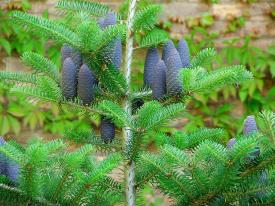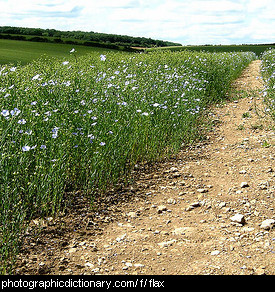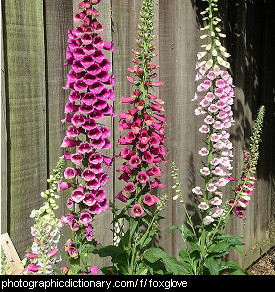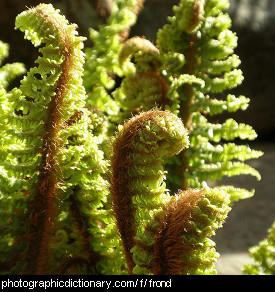Scientific name: foeniculum vulgare
Scientific name: division: pteridophyta
A fern is a type of plant that is not as advanced as trees and flowers. The leaves of a fern are called fronds. Fronds start off tightly curled and uncurl as they grow. Ferns don't grow from seeds, instead they grow from primitive spores. Spores are found in little lumps on the bottom of the fern's fronds, and when they fall out of the lumps they look like fine dust. There are thousands of different kinds of fern.
Scientific name: ficus carica
Figs are the flower of a medium sized tree that is grown almost all over the world. It is originally from the Iran and Pakistan area. It can be grown in most climates, and will tolerate some degree of frost and drought. Figs can be eaten raw, made into jam, cooked into desserts or most commonly, dried.
You can grow your own figs in several different ways. You can take cuttings of bare branches in late winter to early spring before the leaves grow and put them in a sheltered spot in some sandy potting soil. You can also grow them by bending over a young branch and pinning the bend into some soil, waiting for roots to grow at the bend and then cutting the branch from the main tree. Or you can grow figs by layering.
Scientific name: genus: abies
Scientific name: linum usitatissimum
Flax, or linseed, is a plant that is grown for its seeds and for its stems. The seeds can be used whole in baking or used to make oil. Flaxseed or linseed oil is a major component in varnish.
The skin of the flax stems is used to make fibers that can then be woven into fabrics like linen or made into rope.
Flowers are the part of a plant that is used to make seeds, which grow into baby plants. Flowers are usually very pretty. The reason for this is the plant needs insects to come to the flowers and fertilize them so seeds can develop. Insects are attracted to the flowers by their colour and the sweet nectar that the plant grows inside the flower as a reward for the insects.
Scientific name: digitalis purpurea
The digitalis, or foxglove, is a very attractive garden plant that has flowers in various shades of pink. It is a biennial, native to western Europe and parts of Asia and Africa.
The entire plant is toxic, from roots to flowers. It is toxic fresh and dried, and if you have a vase of foxglove flowers, the water in the vase will be toxic too. A large enough dose will kill you, smaller doses cause hallucinations, nausea and severe headaches. It is toxic to people and animals, including cats and dogs.
Fis forFrangipani
Scientific name: genus: plumeria
A frangipani is a tropical deciduous flowering shrub. It is related to the oleander, and both have milky, poisonous sap. Its flowers are usually white with a yellow centre, but some varieties have pink flowers. They are fragrant at night to attract moths.
You can grow your own frangipani easily by taking a cutting without leaves in spring, letting it dry out a little and then putting it into some soil.
A frond is a special type of leaf that is usually found on ferns. Palm trees also have fronds. The fronds on ferns start curled up, and uncurl as they grow.













